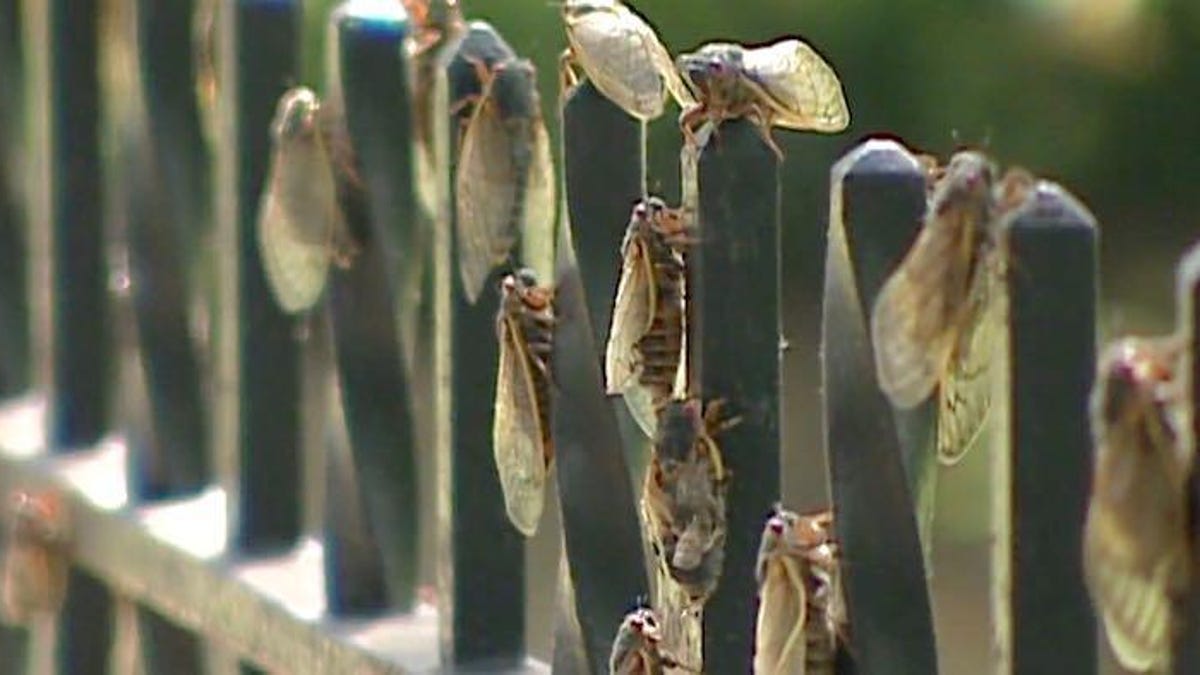Millions of cicadas to emerge after living underground for 17 years
About 1.5 million cicadas per acre will crop up this summer in Virginia, North Carolina and West Virginia.

Cicadas are large insects with clear wings and bulbous alien-like eyes.
If you'd rather not think about murder hornets ruining your summer, you can always worry about swarms of cicadas invading the outdoors with their deafening buzz and molted brown husks.
This year, 1.5 million cicadas per acre will be popping up in parts of Virginia, North Carolina and West Virginia, according to scientists at Virginia Tech. People who live in these areas will see a unique natural phenomenon that hasn't happened since 2004.
Depending on the species, cicadas either show up every year, or periodically (every 13 or 17 years). These particular periodical cicadas belong to a group called Brood IX.
"The timing of a 13- or 17-year cycle is one of the great mysteries of the insect world," scientists said in a Virginia Tech statement.
These insects aren't a threat to humans, but the cicadas could harm orchards, vineyards and trees with their egg-laying habits, which often break branches and vines. On the plus side, cicadas are a delicious snack for hungry birds, turtles, raccoons, squirrels, chipmunks and other wildlife.
It's the cicadas' loud buzzing that might be the biggest annoyance. The Virginia Tech scientists compare the sound with a "cacophonous whining like a field of out-of-tune car radios."
"Communities and farms with large numbers of cicadas emerging at once may have a substantial noise issue," predicts Eric Day, an entomologist at Virginia Tech. "Hopefully, any annoyance at the disturbance is tempered by just how infrequent -- and amazing -- this event is."
Luckily, cicada broods tend to have short lifespans. They have four-to-six weeks of activity before they start dying off. So the cicadas' symphony of noise shouldn't last for the entire summer.

